Professional Courses
Industry-relevant training in Business, Technology, and Design
Categories
Interactive Games
Fun games to boost memory, math, typing, and English skills
Typing
Memory
Math
English Adventures
Knowledge
Your Guide to the Official JEE Mains Eligibility Criteria

Planning to appear for JEE Mains? Before you register, it’s crucial to understand whether you meet the official JEE Mains eligibility criteria. While lakhs of students prepare for the exam every year, a surprising number are unaware of some of the most basic eligibility rules leading to form rejection or disqualification during counseling.
In this guide, we break down everything you need to know: academic qualifications, subject combinations, number of attempts, reservation rules, age limits, and common mistakes to avoid.
Let’s help you avoid surprises and get 100% clarity before your attempt.
What Is JEE Mains?
JEE Mains is conducted by the National Testing Agency (NTA) and is India’s national-level entrance exam for undergraduate engineering programs. Your JEE Mains score is used for admission into:
- NITs (National Institutes of Technology)
- IIITs (Indian Institutes of Information Technology)
- CFTIs (Centrally Funded Technical Institutions)
- GFTIs (Government Funded Technical Institutions)
- Various top-tier private universities
- And, qualifying for JEE Advanced, which is required for admission into IITs
Now that the exam's importance is clear, let’s understand who can appear and under what conditions.
Academic Qualification
Minimum Requirement
To be eligible for JEE Mains, you must have:
- Passed Class 12 or equivalent with:
- Physics
- Mathematics
- One of: Chemistry, Biology, Biotechnology, or Technical Vocational Subject
The board must be recognized by the Association of Indian Universities (AIU).
Year of Passing
You’re eligible if you:
- Passed Class 12 in 2023 or 2024, or
- Are appearing in 2025
Anyone who passed before 2023 is not eligible, regardless of marks.
Subject Requirements in Class 12
Many students overlook the exact subject combination needed. Here’s what you must have taken in Class 12:
- Physics
- Mathematics
- One elective: Chemistry / Biology / Biotechnology / Technical Subject
- Language (usually English or Hindi)
- One additional subject
So, a total of five subjects is mandatory. If you took only four subjects, your application may be rejected.
This combination ensures you meet the requirements for both JEE Mains and college admission post-exam.
Number of Attempts
JEE Mains allows:
- 3 consecutive years of eligibility after Class 12
- 2 sessions per year (typically in January and April)
That totals 6 attempts maximum.
Example:
If you passed Class 12 in 2024, you can appear in:
- 2024 (2 sessions)
- 2025 (2 sessions)
- 2026 (2 sessions)
You may appear in either one or both sessions per year. Your best score from both sessions is considered for merit.
Age Limit
JEE Mains Age Criteria (2025)
There is no upper age limit for JEE Mains.
As long as you meet the academic and year-of-passing criteria, your age doesn’t disqualify you from taking the exam.
This rule benefits droppers, working students, or anyone returning to academics after a break.
However, age limits do apply if you're planning to appear for JEE Advanced (IITs). So check those separately.
Minimum Percentage Criteria
Here’s where it gets tricky—because many confuse JEE eligibility with college admission criteria.
- There is no minimum percentage required to appear for JEE Mains.
- But to gain admission to NITs, IIITs, and GFTIs, you must have:
- 75% aggregate marks in Class 12 (for General/OBC/EWS)
- 65% for SC/ST/PwD
So you can write JEE Mains with any Class 12 score—but getting into college depends on your percentage.
Reservation and Category-Based Rules
Central Reservation System (Applicable During Admissions)
As per Government of India norms, seats are reserved as follows:
- OBC-NCL: 27%
- SC: 15%
- ST: 7.5%
- EWS: 10%
- PwD: 5% (within each category)
To claim reservation:
- You must upload valid, recent certificates (PDF format)
- For OBC, it must be the Non-Creamy Layer certificate issued within the last year
- PwD students must have at least 40% disability
These rules do not affect eligibility to write the exam—but they are vital during counseling and seat allocation.
State of Eligibility
Your state of eligibility is defined by the location of your Class 12 school board, not your current residence or place of birth.
Why It Matters:
- Home State Quotas in NITs are decided based on this
- If you studied abroad, your eligibility is determined by your Indian nationality and passport
Changing this after applying is not possible, so double-check before form submission.
JEE Mains Eligibility for Droppers
Yes, droppers are fully eligible for JEE Mains—provided they are within the 3-year window of passing Class 12.
Key Notes for Droppers:
- All 6 attempts are still available unless you've already used some
- You still need to meet subject, document, and percentage requirements
- Age is not a barrier
- Many successful candidates, including toppers, are droppers
Taking a drop year is normal, but it only helps if you're using that time with a structured study plan.
Eligibility for Foreign and NIOS Candidates
- NIOS (National Institute of Open Schooling) students are eligible
- Foreign nationals who’ve completed Class 12 in India can also apply
- If you studied outside India, your Class 12 board must be recognized by AIU (Association of Indian Universities)
In both cases, valid documentation is essential—preferably approved by a notary or embassy in the case of foreign schooling.
Documents Required During Application
When applying for JEE Mains, you’ll need to upload:
- Recent passport-size photograph
- Signature scan
- Class 10 certificate (for DOB verification)
- Category certificate (if applicable)
- PwD certificate (if applicable)
Make sure all files are in correct dimensions and size (as per NTA guidelines), or your form may be rejected.
Common Mistakes Students Make
1. Wrong Subject Combination
Taking PCM without a third elective like Chemistry or Biology can disqualify your application.
2. Old or Invalid Certificates
OBC-NCL or EWS certificates must be from the current financial year. Using older documents is a common reason for disqualification during counseling.
3. Incorrect Year of Passing
If you mistakenly select the wrong year (e.g., 2022 instead of 2023), your application could be invalid.
4. Assuming Percentage Isn’t Needed
Yes, it’s not required for JEE Mains—but it is crucial for college admission. Don’t ignore your board marks.
5. Waiting Too Late to Apply
Centers, exam cities, and preferred shifts fill up fast. Apply as early as possible to avoid travel and slot issues.
Final Checklist Before You Apply
Before hitting "Submit", make sure:
- ✅ You passed Class 12 in 2023, 2024, or are appearing in 2025
- ✅ You studied PCM + one additional subject (total 5 subjects)
- ✅ Your documents are scanned, clear, and updated
- ✅ You haven’t exhausted your 6 attempts
- ✅ Your category details and certificates are current and valid
- ✅ You meet the college admission mark requirements
Missing even one of these can ruin your application—and delay your dream college.
Final Thoughts
Understanding the JEE Mains eligibility criteria isn’t just about filling out a form—it’s about safeguarding your entire college admission process. Missteps in eligibility are harder to fix later, and they can cost you an entire year.
The rules are simple if you follow them closely:
- Stick to the 3-year window
- Ensure correct subjects and number of papers
- Prepare your documents ahead of time
- Take all attempts seriously
- Don’t rely on luck—rely on understanding the system
Now that you're clear on eligibility, your focus can shift to what really matters: preparation, consistency, and performance.
You’ve cleared Step 1. Now let’s get to work on Step 2.

Learn how negative marking works in JEE Main 2025 and how to avoid it with practical, proven strategies.

Learn how to prepare for JEE Main 2025 with a proven, winning strategy. Get a detailed plan, subject-wise tips, and...

Learn the chapter-wise weightage for JEE Main 2025 across Physics, Chemistry, and Maths. Prioritise smartly and...

Discover the most important chapters for JEE Main 2025 across Physics, Chemistry, and Maths. Focus your prep smartly...

Discover top JEE Main books for Physics, Chemistry & Maths. Learn how NCERT & reference books pair with AllRounder.
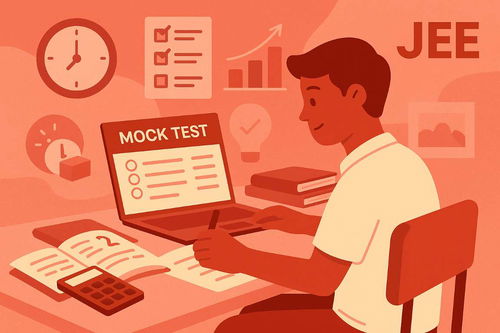
Looking for free JEE Main mock tests to boost your preparation? Discover the best platforms, tips, and strategies to...

Discover what scores and percentiles are needed to secure seats in top NITs, IIITs, and GFTIs. Learn how category...
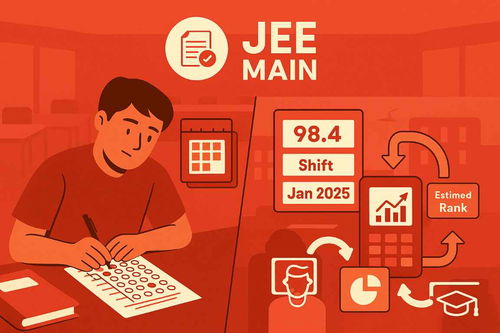
Understand the exact difference between JEE Main percentile and rank. Learn how scores are normalized across...

Understand the JEE Main scoring system to maximize your result. Learn the marking scheme, how to handle negative...

Confused about the JEE Main attempt limit? This guide clarifies how many times you can appear, the eligibility...

Wondering how many times you can appear for JEE Mains? This guide explains the total attempts allowed, session...
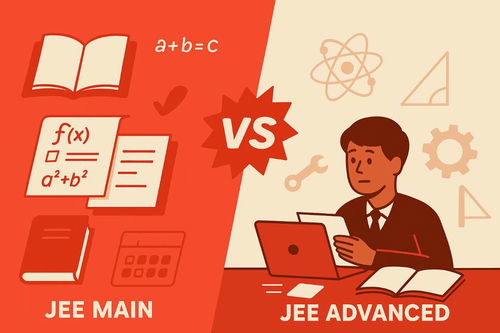
Discover the key differences between JEE Main and JEE Advanced in terms of syllabus, pattern, difficulty, and prep...

Confused about JEE Main qualification rules? This blog gives you a detailed checklist of eligibility criteria,...

Explore this simple, step‑by‑step guide to the JEE Main counselling process. Learn how to register, fill choices,...

Curious about how many times SC students can attempt JEE Main? This complete guide covers JEE Mains attempt rules,...
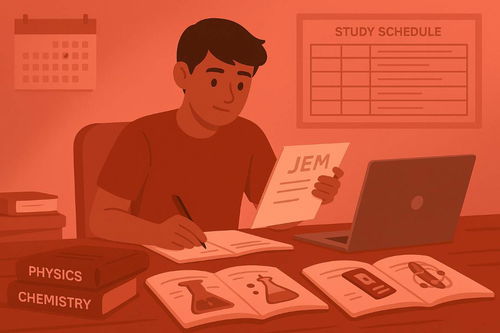
Want to score 200+ in JEE Main? This practical guide gives you proven tips, subject-wise strategies, mock test...

Wondering how the JEE Main exam is structured? This complete guide breaks down the official JEE Main exam pattern...
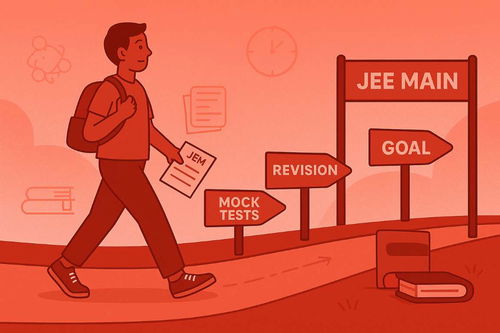
Learn how to crack JEE Main on your first attempt with proven strategies. This guide covers planning, conceptual...
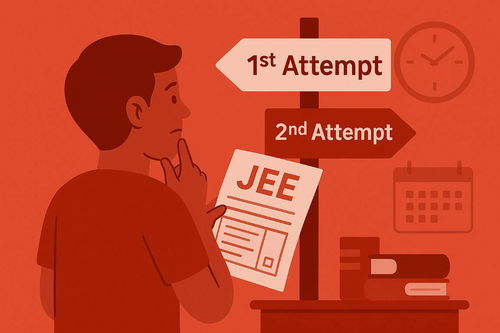
Learn how many JEE Main attempts you can take after Class 12. This guide covers eligibility, attempt limits, subject...
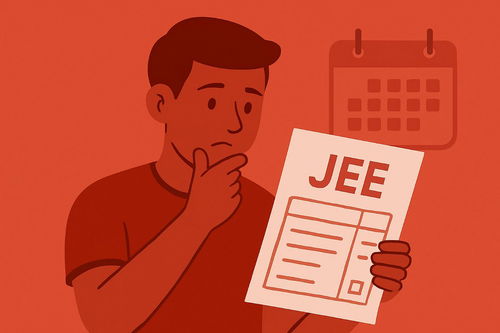
Learn about the JEE Main age limit requirement and key eligibility rules. Understand the attempt policy, Class 12...

Discover the most important topics for the JEE Main exam in Physics, Chemistry, and Mathematics. Learn subject-wise...
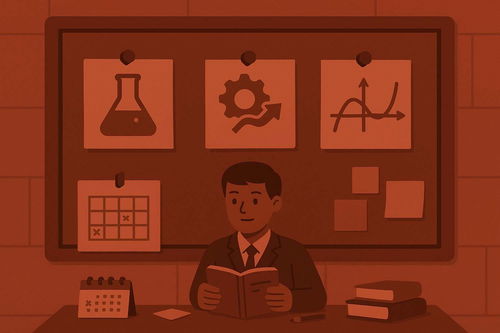
Get a subject-wise preparation strategy for JEE Main step-by-step using smart tips and trusted resources from AllRounder.ai.

Looking to score high in JEE Main 2026? Discover expert preparation tips on creating smart study plans, mastering...

Confused about JEE Mains eligibility? This detailed guide explains JEE Mains eligibility criteria including...
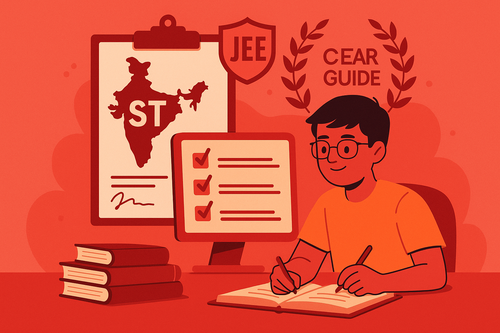
Confused about JEE Main Attempts for ST Category? This detailed guide covers attempt limits, age relaxations,...
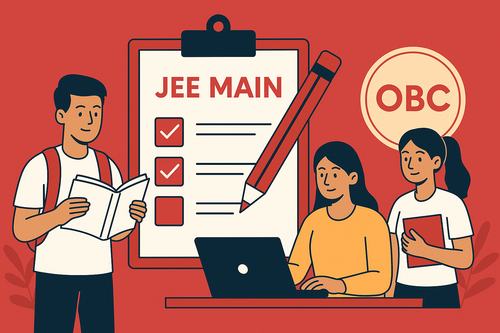
Wondering how many times OBC candidates can appear for JEE Mains? This detailed guide explains JEE Main Attempts for...

Dropping a year for JEE Mains? This in-depth strategy guide helps droppers optimise their JEE Main attempts with...

Confused about how many times you can appear for JEE Main? This guide explains the number of JEE attempts, session...
Resources
-
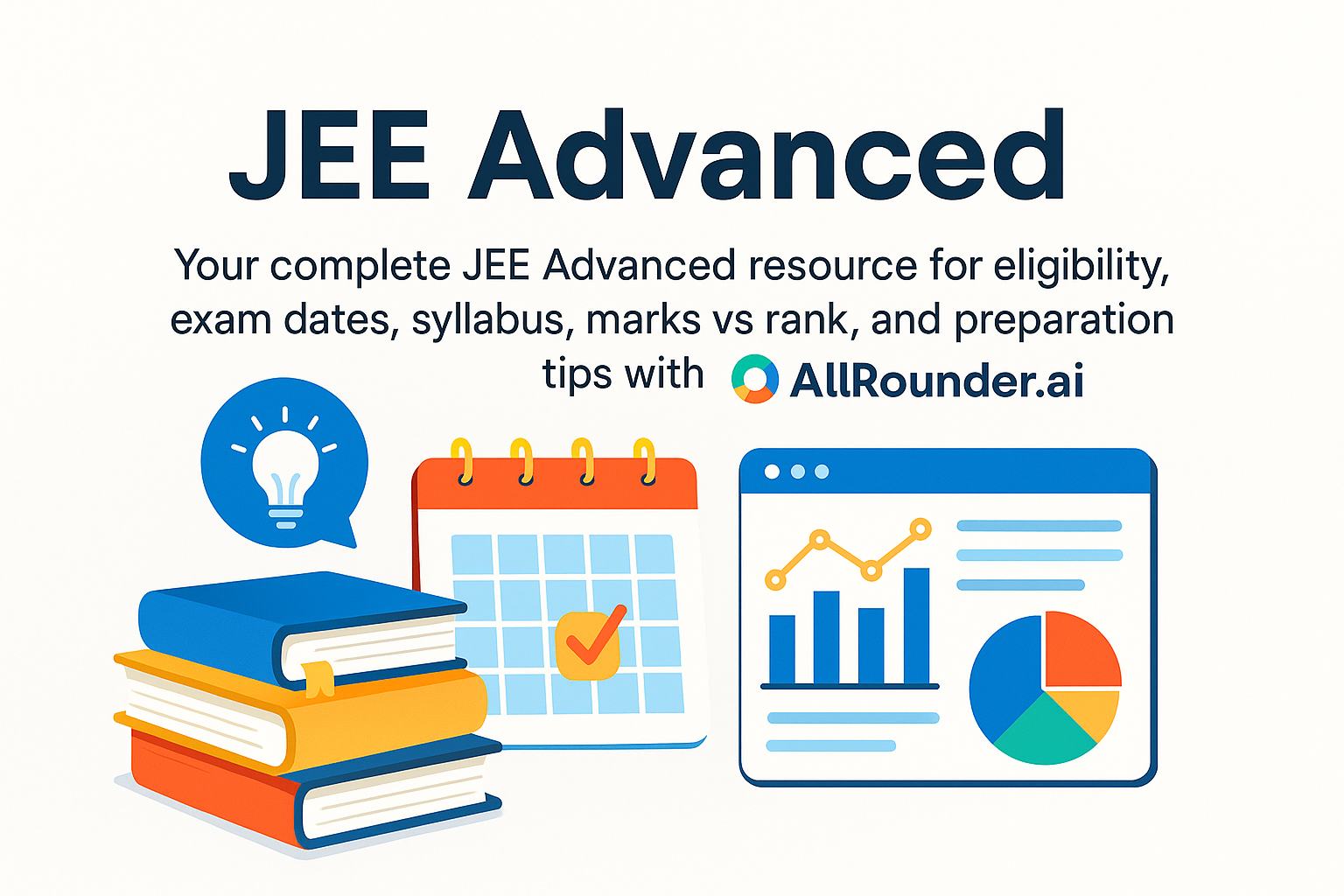
Your complete JEE Advanced resource for eligibility, exam dates, syllabus, marks vs rank, and...
-
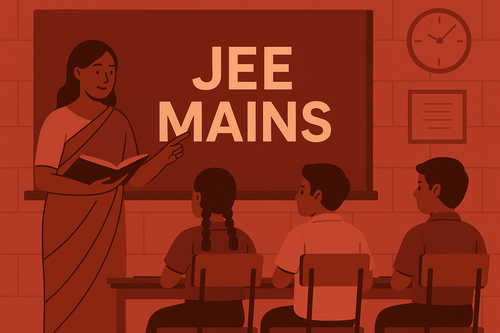
Understand the entire JEE Main process, from application and eligibility rules to the exam...
-

Explore the IB Board – a global curriculum emphasizing holistic, student-centered learning...
-

Learn about CBSE – India’s national school board offering a standardized curriculum, NCERT...
-

Explore everything about the ICSE board – its curriculum, subjects, exam format, and academic...
